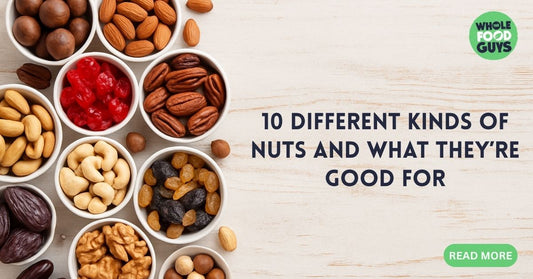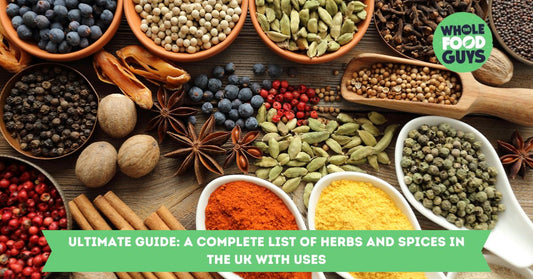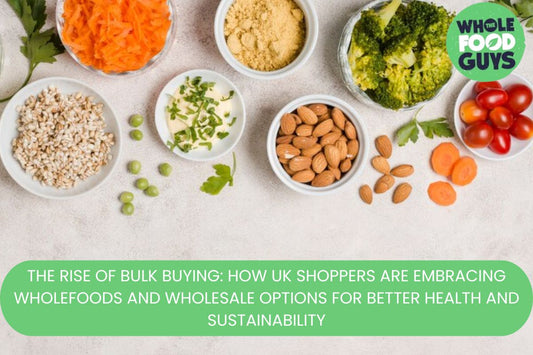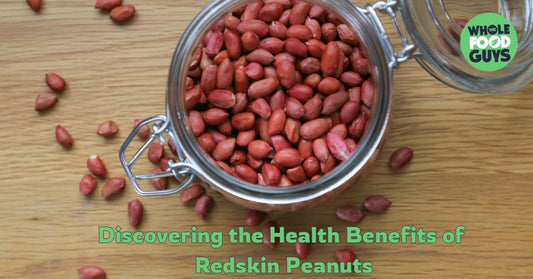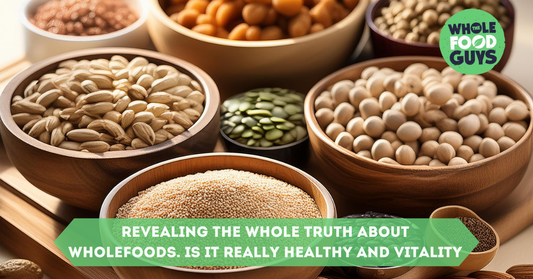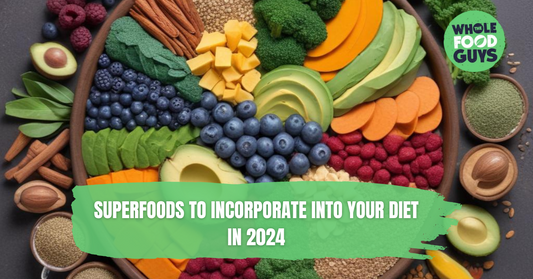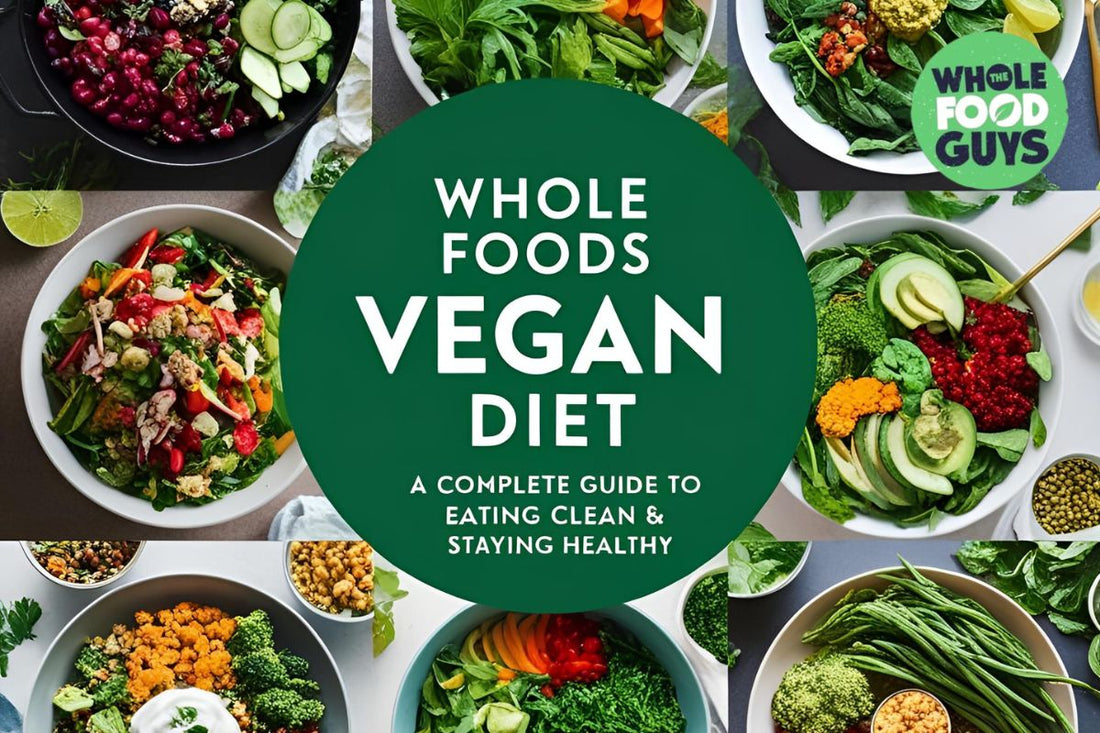
Whole Foods Vegan Diet: A Complete Guide to Eating Clean & Staying Healthy
Introduction
It's one of the best things you can do for your body and be gentle on the planet. By focusing on natural, unprocessed plant foods, you can have a nutrient-dense diet that's full of flavor and good for the planet.
Whether you are new to the world of veganism or simply want to make adjustments to your diet, this book will walk you through all you need to know everything from key nutrients to cooking meals and delicious recipe suggestions.
Dive into the world of raw, plant-based nutrition and learn how a whole foods vegan diet can revolutionize your health!
What Is a Whole Foods Vegan Diet?
A whole food plant-based diet is built from minimally processed plant food. It involves eating fresh fruit, vegetables, legumes, whole grains, nuts and seeds and avoiding processed food, artificial add-ins, and refined sugars.
✅ Whole Foods: Fresh, natural, and unprocessed.
✅ Plant-Based: No animal foods (meat, dairy, eggs, honey)
✅ Nutrient-Dense: Vitamin-rich, mineral-rich, high in fiber and antioxidants
✅ Sustainable & Ethical: Encourages environmental and animal welfare.
With this method, you give your body pure energy and minimize your risk of developing chronic illnesses.
So while maintaining a healthy and plant based lifestyle, buying wholefoods in bulk is a smart way to save money.
Stocking up essentials ensures that you have nutritious ingredients on hand. Explore our collection of bulk buying whole foods to get high quality products at best prices
Health Benefits of a Whole Foods Vegan Diet
🍏 Fruits & Vegetables
-
Fresh and seasonal produce like berries, apples, carrots, spinach, kale, and sweet potatoes.
🌾 Whole Grains
-
Brown rice, quinoa, oats, buckwheat, whole wheat, and millet.
🥜 Legumes & Pulses
-
Chickpeas, lentils, black beans, kidney beans, and peas.
🥑 Healthy Fats
-
Nuts (almonds, walnuts, cashews), seeds (chia, flax, pumpkin), and plant-based oils (olive oil, coconut oil).
🥛 Dairy Alternatives
-
Almond milk, oat milk, coconut milk, and cashew cheese.
🌱 Superfoods
-
Spirulina, hemp seeds, cacao nibs, nutritional yeast, and turmeric.
Foods To Avoid
❌ Processed plant foods (vegan junk food, imitation meats, sweet snacks)
❌ Refined grains (white bread, white rice, pasta)
❌ Added sugars (desserts, soft drinks, processed syrups)
❌ Unhealthy oils (vegetable oils with high trans fats)
An emphasis on whole foods that are natural as opposed to highly processed substitutes is necessary to achieve the full benefits of a plant-based diet.

🔬 Nutrient Comparison: Whole Foods Vegan vs. Processed Vegan
|
Nutrient |
Whole Foods Vegan (Quinoa, Lentils, Nuts, Vegetables) |
Processed Vegan (Mock Meats, Vegan Cheese, Snacks) |
|
Protein |
High – Plant sources natural |
Moderate – Often fortified, lacks balance |
|
Fiber |
High – Encourages digestion & gut health |
Low – Processing removes natural fiber |
|
Added Sugar |
None – Naturally found in fruits/vegetables |
High – Contains artificial sweeteners |
|
Sodium |
Low – Naturally present in whole foods |
High – Added for taste & preservation |
|
Antioxidants |
High – Rich in vitamins, minerals & polyphenols |
Low – Nutrients lost during processing |
How to Get Essential Nutrients on a Whole Foods Vegan Diet
Some people worry about getting the appropriate nutrients in a plant-based diet, but if planned correctly, you can achieve all the nutritional needs.
🥦 Protein Sources
Lentils, chickpeas, quinoa, tofu, tempeh, nuts, and seeds.
💪 Iron-Rich Foods
Spinach, lentils, pumpkin seeds, and quinoa. Pair with vitamin C (bell peppers, citrus fruits) for better absorption.
🦴 Calcium for Strong Bones
Kale, broccoli, almonds, sesame seeds, and fortified plant based milk.
🌞 Vitamin D for Immunity
Sun exposure, fortified plant-based milk, and mushrooms.
🧠 Omega-3 Fatty Acids
Chia seeds, flaxseeds, walnuts, and hemp seeds.
💊 Vitamin B12 for Energy
Energy Supplemented foods such as nutritional yeast, non-dairy milk, and supplements.
Meal Planning for a Whole Foods Vegan Diet
Here’s a simple meal plan to get you started:
🥣 Breakfast:
Overnight oats with chia seeds, almond milk, and fresh berries.
Avocado toast on whole-grain bread with hemp seeds.
🥗 Lunch:
Chickpea, cherry tomato, and tahini dressing quinoa salad.
Buddha bowl with brown rice, roasted vegetables, and hummus.
🥘 Dinner:
Lentil curry and brown rice with steamed greens.
Stir-fried tofu with cashew nuts, bell peppers and broccoli.
🥑 Snacks:
Dried fruits and mixed nuts.
Homemade energy bars made with oats, nuts, and dates.
Delicious Whole Foods Vegan Recipes

🥗 Quinoa & Chickpea Salad
✅ Ingredients:
-
1 cup cooked quinoa
-
½ cup chickpeas
-
½ cucumber, chopped
-
1 handful cherry tomatoes, halved
-
1 tbsp olive oil
-
1 tsp lemon juice
-
Salt & pepper to taste
✅ Method:
-
Mix all ingredients in a bowl.
-
Drizzle with olive oil and lemon juice.
-
Toss well and enjoy!

🍪 No-Bake Energy Balls
✅ Ingredients:
-
1 cup oats
-
½ cup almond butter
-
¼ cup flaxseeds
-
¼ cup dark chocolate chips
-
2 tbsp maple syrup
✅ Method:
-
Combine all ingredients in a bowl.
-
Roll into small balls and refrigerate for 30 minutes.
-
Enjoy as a healthy snack!
Final Thoughts: Why Choose a Whole Foods Vegan Diet?
A whole food vegan diet isn't a means of eating but a lifestyle of health, sustainability, and morality. By embracing natural, wholesome foods, you can achieve extraordinary health advantages, increased energy levels, and lifelong wellness.
So why not? Start your way to pure, plant-based nutrition today and nourish your body the way nature meant to!
